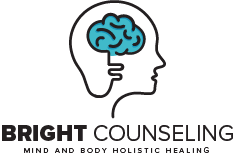10 Test Prep Tips to Help Students Do Their Best
 While the end of the school year brings excitement for many kids, it also typically means testing. And that can be a source of stress and anxiety for parents and students. Therapist Casherie Bright shares 10 tips that can ease testing anxiety and help your student do their best.
While the end of the school year brings excitement for many kids, it also typically means testing. And that can be a source of stress and anxiety for parents and students. Therapist Casherie Bright shares 10 tips that can ease testing anxiety and help your student do their best.
1. Test prep starts the night before the test, or even several nights before!
Sleep is a huge factor in determining how well children and teens do in school and how well they do on tests. Many times people experiencing anxiety and depression have sleep problems. They either can’t fall asleep, can’t stay asleep, wake up frequently during the night, or wake up early and stay awake. This is a common theme in mental health.
Children and teens who are not getting enough sleep are not as patient and are more likely to get bored and “zone out” during tests and other boring tasks (non-preferred activities). Talk to your child about how they are sleeping. Vitamins (such as L-theanine, melatonin, and GABA) can be a good option to improve sleep. Talk to your pediatrician about which vitamins they think you should try.
Meditations can also help children and adults get to sleep easier. For more sleep tips, see this article.
2. A few days prior to the test, have a chat with your kids about test-taking tips.
Discussing things like the following can help them to remember to do their best:
- Take your time; don’t rush. Don’t just guess.
- Eliminate the answers that you know are wrong and then see which answer is the best fit.
- Sometimes there are two good answers and the test wants you to select the BEST answer.
Many times I see kids rush through tests just to get done with it. Remind them it’s okay to take breaks.
Some common things include allowing your child extra time to take the test or allowing your child to have breaks during the test. Another thing they’re allowed to do is have the test read out loud to your child.
This should not be a “sugary cereal and chocolate milk” breakfast! High-protein breakfasts are best because they will help ensure that your child doesn’t have a sugar crash a few hours into the day. Things that we do with our children include scrambled eggs with cheese, high protein pancakes (from Costco) with peanut butter or homemade jelly, and oatmeal with honey or fresh fruit.
The brain needs sufficient water and hydration to function on an optimal level. Coach your child that it’s okay to take drinks if they start to feel overwhelmed or stressed by the test. A drink can be a good little mini break.
Brain healthy vitamins include fish oils and B vitamins.
Being outside in the sun can naturally increase vitamin D in the body, and getting the body active can help reduce anxiety and increase natural endorphins in the body.
Tell them that you’re proud of them for trying their best and how much they have learned all year.
Neurofeedback can help greatly with anxiety and an overall sense of peace and calmness, which often helps kids perform better at school. Call us at 801-855-7999 to schedule a consultation to see how we can help your child.
Celebrate their hard work and effort, not just the scores. When report cards come out, look for businesses that offer free prizes for good grades. For example, Krispy Kreme gives a free doughnut for every A (up to six per child). Do you know a business that offers rewards for report cards? Tell us at info@ncutah.com!

Casherie Bright, Clinical Mental Health Counselor, is a partner at Neurofeedback and Counseling of Utah, along with her husband, Jeff Bright. “I love to work with children and their families to provide overall strategies on how to help the child adjust and find happiness. I don’t believe that children can be helped without supporting the parents.”
“My therapy methods tend to focus on skills (CBT) and changing core beliefs. My goal for each client or family is to help them create and visualize a life that is ideal and then work towards creating that life.”
Share this:
- Click to share on Facebook (Opens in new window)
- Click to share on Pinterest (Opens in new window)
- Click to share on Twitter (Opens in new window)
- Click to share on LinkedIn (Opens in new window)
- Click to share on Reddit (Opens in new window)
- Click to email this to a friend (Opens in new window)
- Click to print (Opens in new window)
- Click to share on Tumblr (Opens in new window)
- Click to share on WhatsApp (Opens in new window)



